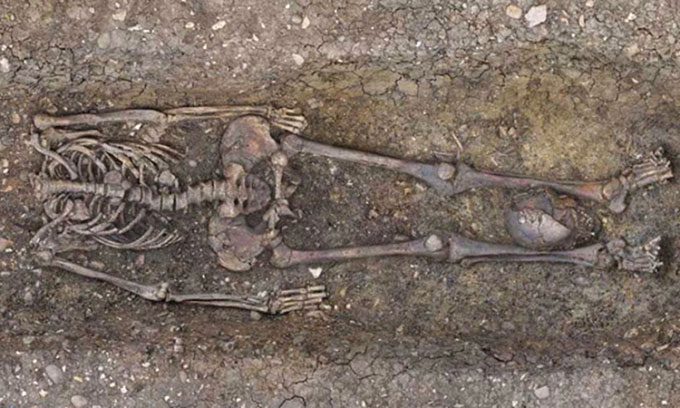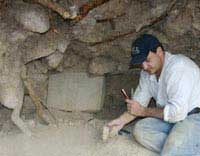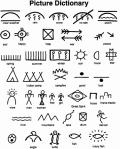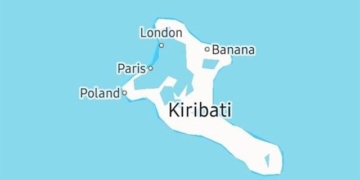Among the decapitated skeletons found in an ancient cemetery in Buckinghamshire, some skulls were placed between the legs, while others were positioned next to the feet.
A research team of approximately 50 archaeologists discovered 425 skeletons in a late Roman cemetery, including around 40 decapitated remains, Science Alert reported on February 6. Many skulls were found placed between the legs or beside the feet of the deceased.

Around 40 decapitated skeletons were found in a late Roman cemetery in Buckinghamshire, England. (Photo: HS2)
The scientists discovered these skeletons during an excavation at Fleet Marston, near Aylesbury, Buckinghamshire, as part of the HS2 high-speed rail project. They believe that decapitation was a burial ritual at the end of the Roman period, but it is also possible that these individuals were criminals or outcasts.
In the coming years, scientists will study the excavated skeletons, providing opportunities to learn more about the lifestyle, diet, and beliefs of Roman civilization. “All excavated skeletons will be treated with care and respect. Additionally, our findings will be shared with the community,” said Helen Wass, head of the heritage department for the HS2 high-speed rail project.
The research team also uncovered more than 1,200 coins and several lead weights, indicating that this was a trading area. Furthermore, they found household items including spoons, pins, and brooches. Other artifacts such as dice and bells suggest that gambling and religious activities also took place here.
The Romans ruled Britain from around 43 to 410 AD. “This excavation is significant, providing valuable information about the Roman town and its many inhabitants,” commented Richard Brown, senior project manager for the COPA JV organization.
Fleet Marston is one of over 100 archaeological sites excavated since 2018, when the construction of the HS2 high-speed rail line from London to Birmingham began. Scientists have uncovered much information about life in Roman Britain nearly 2,000 years ago through these excavations.





















































